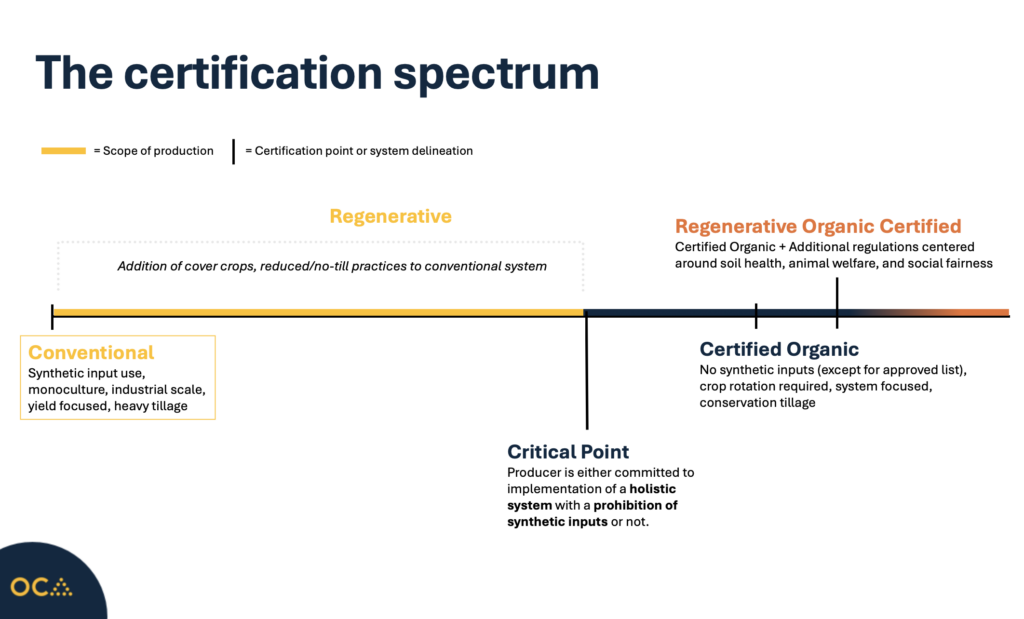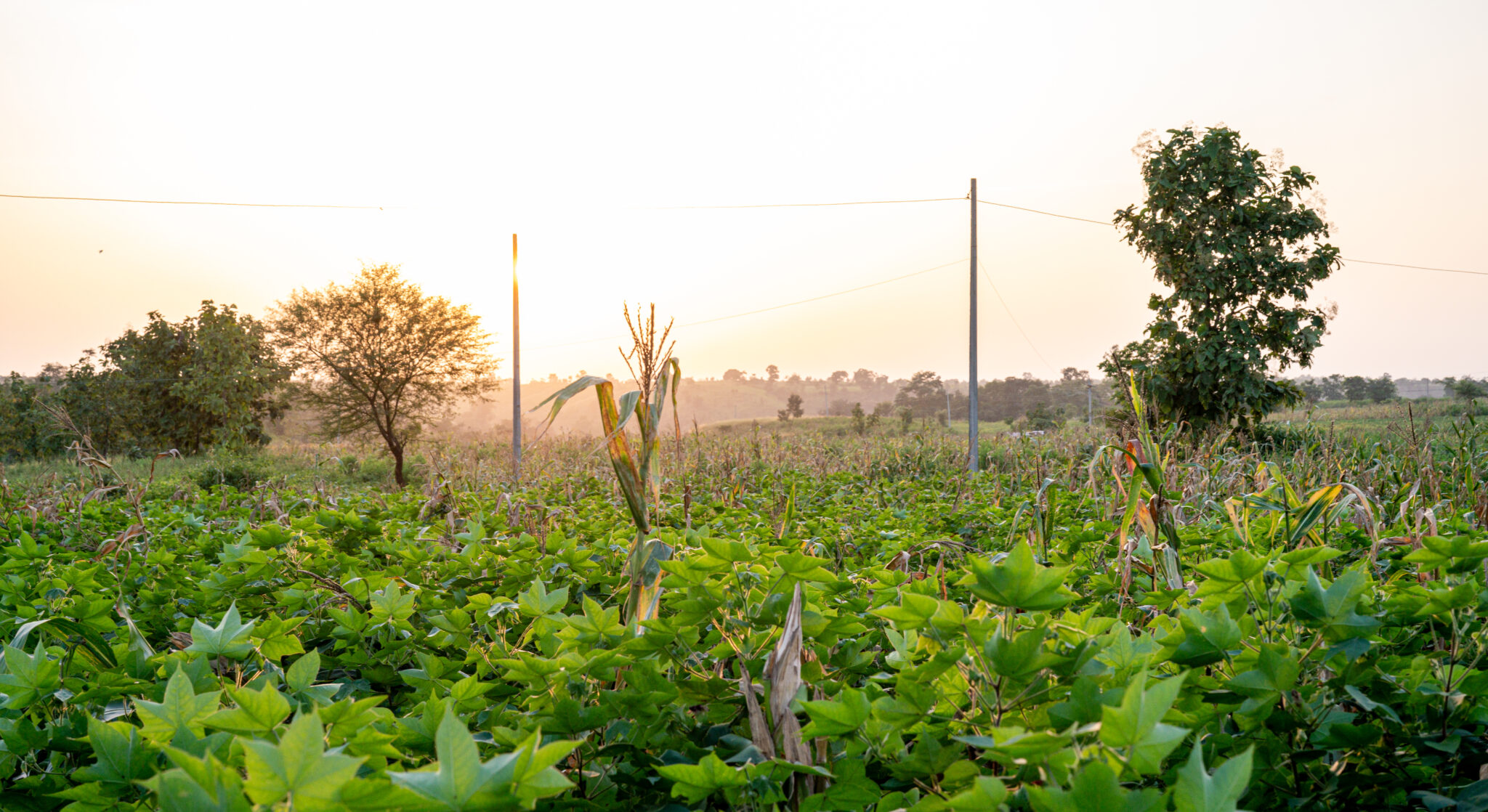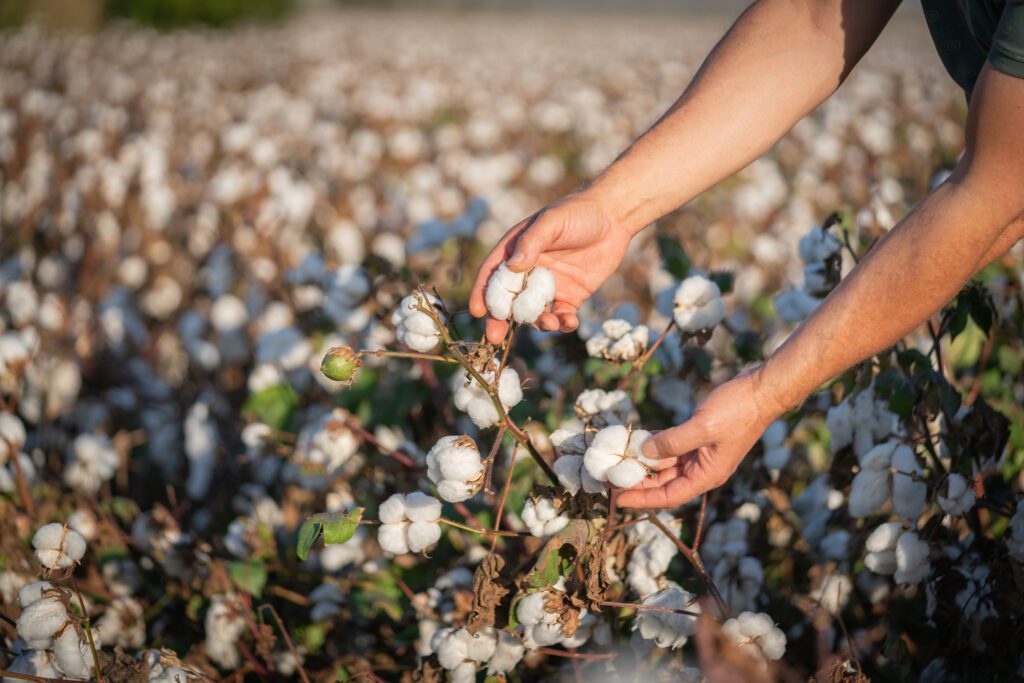For the Organic Cotton Accelerator (OCA), organic and regenerative farming practices work hand in hand to restore soil health, enhance biodiversity, and reduce carbon footprints, particularly in the cotton sector. At OCA, we deliver a stronger programme by incorporating both organic and regenerative practices in our work. OCA is on a mission to empower farmers, guiding them on a transformative journey of continuous learning. Over a season, our training programme supports farmers with modules that teach important regenerative and organic practices. Our philosophy is simple: regenerative and organic practices are not mutually exclusive concepts. They reinforce one another.
Organic and Regenerative: a spectrum of sustainability
Organic and regenerative agriculture operate on a spectrum, starting from conventional practices that use synthetic pesticides and gradually incorporating more sustainable methods like no-till farming and cover cropping, without necessarily eliminating all synthetic inputs. It doesn’t strictly prohibit pesticides, herbicides, or GMOs. As practices move closer to organic farming, the approach becomes more holistic, working in harmony with nature. The ideal combination is “regenerative organic agriculture,” which integrates organic standards with the ongoing improvement ethos of regenerative practices, while also addressing social and animal welfare.

Both organic and regenerative methodologies emphasise continuous improvement and sustainable practices. Whilst organic farming focuses on eliminating synthetic inputs and promoting natural processes, regenerative agriculture presents a complementary system that incorporates agricultural practices that actively restore and revitalise ecosystems.
Whilst both practices share common goals, they differ in their legal and regulatory frameworks. Organic farming is governed by strict certification standards that ensure the elimination of synthetic inputs. Regenerative agriculture, although less defined by legal standards, emphasises outcomes such as improved soil health and ecosystem restoration.
OCA and Regenerative agriculture
By combining organic and regenerative practices, OCA offers a holistic approach to cotton farming. This synergy results in healthier soils, increased biodiversity, and significant contributions to climate change mitigation. By adopting these practices, farmers can ensure sustainable production while preserving natural resources for future generations.
OCA is at the forefront of incorporating innovative practices within its organic cotton projects, specifically in India, Pakistan and Türkiye. Through initiatives such as capacity building and demonstration plots, OCA helps farmers adopt up to 20 regenerative and organic practices that enhance soil health and biodiversity.
Regenerative organic cotton production plays a crucial role in reducing scope three emissions, which are indirect greenhouse gas emissions from the entire value chain. By promoting regenerative practices, OCA helps brands minimise their carbon footprints and contribute to global climate goals.
All brands in the OCA programme opt into this approach, collectively enabling significant benefits for farmers and the environment. Brands like Patagonia exemplify the benefits of transitioning to regenerative organic cotton. This brand has successfully integrated these practices into its supply chain by supporting its farmers on the journey to regenerative organic certified cotton. The case of Patagonia serves as an example, showcasing how brands can invest in practices that promote soil health and accelerate positive change for people and the environment.
From OCA’s perspective, regenerative organic certified is the ideal approach—or the last step in the spectrum. It combines the strict standards of organic farming with the adaptability and continuous improvement focus of regenerative practices.
The future of organic and regenerative
As we confront the twin crises of biodiversity loss and climate change, regenerative and organic farming practices emerge as pivotal solutions to what are some of the most pressing environmental issues of our time.
OCA continues to develop and promote regenerative organic practices within the cotton sector. By fostering the adoption of these practices, OCA aims to deliver significant impacts on climate, biodiversity, and social standards. Upcoming initiatives and key performance indicators will provide further insights into the progress and benefits of these practices.
The journey towards widespread adoption of regenerative and organic farming practices requires ongoing investment from the industry and donors. Collaboration is essential to guide more farmers towards sustainable practices and ensure the long-term success of these initiatives.
Join us in supporting the transition to regenerative and organic cotton farming. Whether you are a brand looking to enhance your supply chain or a donor seeking impactful projects, your involvement is crucial. Participate in the OCA Farm Programme, explore funding opportunities, and contribute to a sustainable future for cotton farming.
Together, we can make a difference. Let’s embrace organic and regenerative practices today to help build a resilient and sustainable cotton sector for tomorrow.



